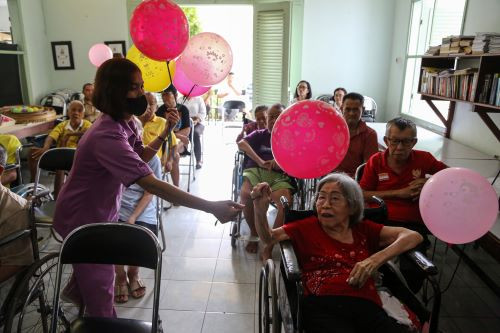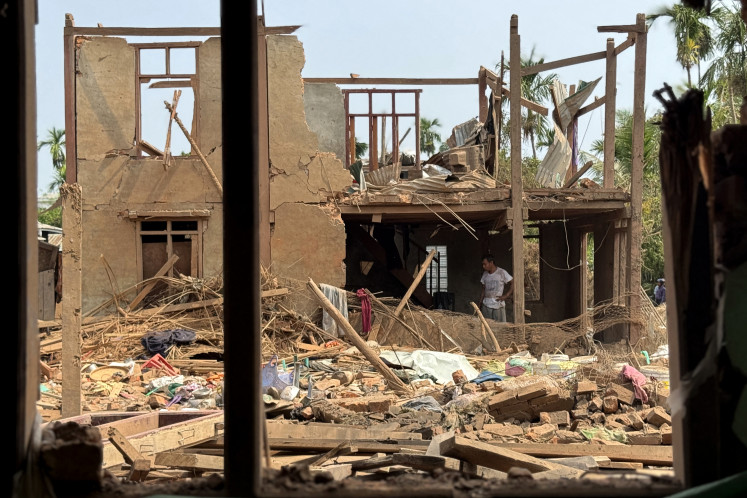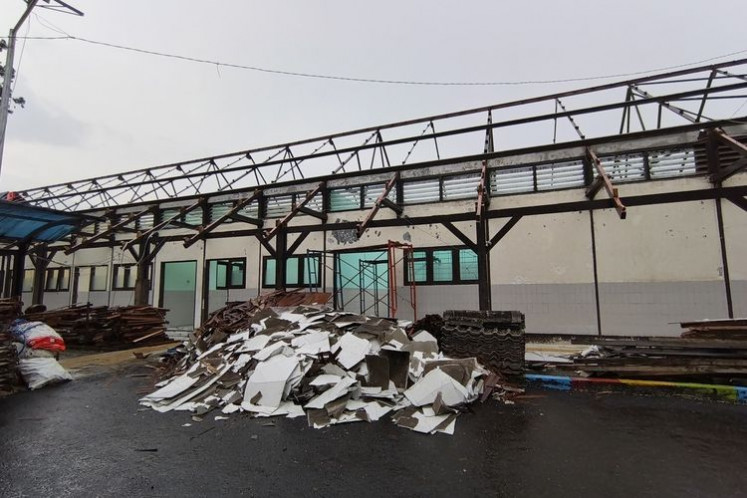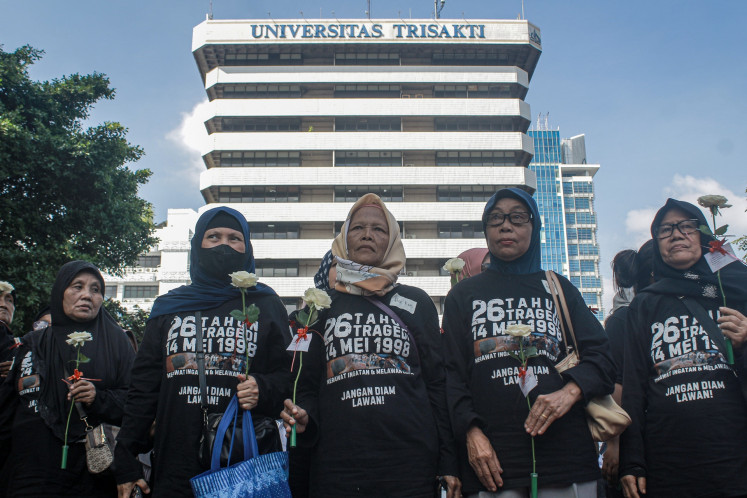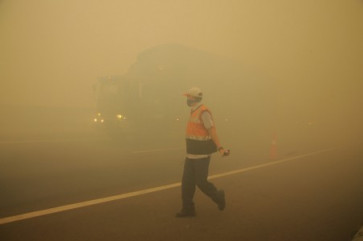What can be done to protect communities during haze season?
A study by the Energy Policy Institute at the University of Chicago estimated that residents of Sumatra and Kalimantan risk having their life expectancy shaved off by four years on average due to exposure to dangerous particulate matter caused by the haze.
Change text size
Gift Premium Articles
to Anyone
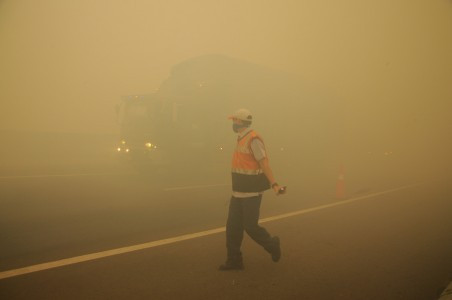 A toll road workers manages the traffic amid thick smog from forest and land forest in peatland area in Pulau Semembu village, Ogan Ilir regency in South Sumatra on Monday, Aug. 5, 2019. (JP/Ahmad Rizki Prabu)
A toll road workers manages the traffic amid thick smog from forest and land forest in peatland area in Pulau Semembu village, Ogan Ilir regency in South Sumatra on Monday, Aug. 5, 2019. (JP/Ahmad Rizki Prabu)
A
lmost every year, toxic haze caused by forest fires engulfs vast parts of Kalimantan and Sumatra, filling the lungs of millions of people living in these areas. The fires typically occur as a result of slash and burn practices to clear land for oil palm or pulpwood plantations. As of Sept. 20, there were 5,086 fire hot spots recorded in Indonesia and 328,724 hectares of land burned, according the National Disaster Mitigation Agency (BNPB). Families in the area are waking up to red skies and clouds of toxic air.
In Central Kalimantan’s capital city of Palangkaraya — home to over 280,000 people — the air quality index (AQI) on Sept. 16 was reported at the hazardous level of 452, according to Air Visual. Thus hundreds of thousands of people are exposed to high levels of unhealthy particulate matter with a diameter of 2.5 microns (PM2.5) or less.
According to the World Health Organization, particles with a diameter of 10 microns or less can penetrate and lodge deep inside the lungs, but even more health-damaging are those with a diameter of 2.5 microns or less, which can penetrate the lung barrier and enter the blood system.
This level of exposure to toxic air puts people in Riau and Kalimantan provinces at high risk of developing acute respiratory syndrome, an infection caused by inhaling unsafe levels of particulate matter in the air.
The number of acute respiratory syndrome cases in West Kalimantan reached more than 15,000 cases in July, whereas in Riau, the figure reached 15,346 in the first two weeks of September, according to the Health Ministry.
A study by the Energy Policy Institute at the University of Chicago estimated that residents of Sumatra and Kalimantan risk having their life expectancy shaved off by four years on average due to exposure to dangerous particulate matter caused by the haze.
Local governments in Sumatra and Kalimantan have instructed families, especially children, to stay inside to avoid toxic air; while some civil society organizations are distributing N95 masks. The BNPB reported that authorities have deployed dozens of helicopters, with over 200 million liters of water to extinguish the fires. The Social Affairs Ministry and other government bodies have also set up dozens of safe houses, which are closed off spaces with air purifier units and oxygen tanks that can filter indoor air.




